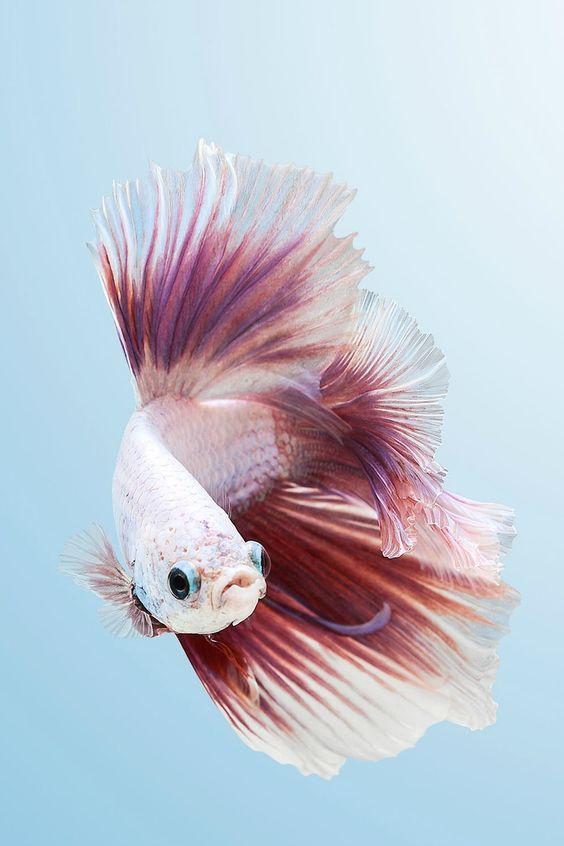Betta Fish Care

Betta Fish Care
So, are you deciding whether a Betta fish is for you?
Betta fish make fantastic pets for families and experienced aquarium hobbyists alike. They are a beautiful fish with long flowing fins and bright colors - they also have their own unique personalities which you will grow to love.
Betta fish are not difficult pets to look after, however, there are many myths about Betta care which often mean they are not kept in ideal conditions.
Here is what you need to know to look after a happy and healthy Betta…
The Tank
Betta fish should never be kept in small vases, bottles or small bowls. Unfortunately there is a myth that this is an adequate environment for a Betta, however this is not the case. The water conditions cannot stay up to par.
You should choose an aquarium with a filter and a heater – a 5 gallon tank would be a perfect size, but the bigger the better!
A heater is needed to keep the water to 77-80 degrees Fahrenheit. This is the temperature of the topical waters of Thailand where Betta fish come from.
A filter is needed to keep the water conditions optimal. The tank will still require a 10% water change every week. A gentle flowing filter is preferred by betta fish because their long flowing fins are not good at fighting currents in the water.
An aquarium light will be needed if you have live plants in your aquarium. Live plants are recommended as they naturally help take toxins out the water, plus your Betta fish will love them!
Need more information on setting up the perfect Betta fish tank? We go into more detail on our website.
Diet

Betta fish are carnivorous fish. In the wild they feed off insects, larvae and insect eggs from the water’s surface. This means that the fish food that you choose should be high in protein. Check the back of the pack, the first ingredient should be meat based and protein levels around 40%. There are Betta fish specific pellets on the market, and it’s a good idea to check those out as some of the cheaper generic tropical fish flakes are not ideal.
From time to time you may also like to give your betta fish a treat of a freeze dried / frozen blood worm.
One of the most common mistakes for beginner Betta fish owners is to over feed their Betta fish. It is very bad for a Betta fish’s health for it to be over fed and can lead to many illnesses. A good rule of thumb is that a Betta fish’s stomach is not much bigger than its eye – you should not feed more than this amount in any one sitting.

Tank mates
Betta fish do not get called ‘fighting fish’ for no reason. Betta fish are territorial and tank mates should be selected carefully to avoid any fish injuries.
You should never keep two male Betta fish together they will fight for their territory.
However, it is possible to have tank mates with Betta fish, but make sure to always ask at the pet store before you buy, and keep the following information in mind…
- Allow around 5 gallons of personal space for your betta fish before introducing a tank mate.
- Brightly colored fish (especially ones with flowing tails) should be avoided – Betta fish will confuse these for other male betta fish.
- Some bottom feeders / sucker mouth fish make great tank mates. This is because they spend time at the bottom of the tank. Betta fish prefer to swim around the surface.
- Any fish known to be fin nippers should be avoided.
- Use tank decorations and plants to create hiding places. These also obstruct the vision between the Betta and its tank mates.
Owning a Betta fish can be such fun, they are a beautiful colorful fish that will stand out in your aquarium. Hopefully, by following this guide you will be able to own a really happy and healthy betta fish and share many enjoyable moments together.
This blog is courtesy of the guys at japanesefightingfish.org. A friendly and informal betta fish care blog that has been running for many years. From tank specifications to betta fish toys, this site has it covered.









